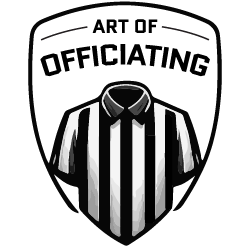NFL sideline official Jeff Hutcheon recently shared a powerful insight during an interview with the South Denver Fellowship of Christian Athletes (posted on YouTube on May 26, 2025). He was talking about one aspect that separates a good official from a great one — and his answer wasn’t about rules knowledge, mechanics, or judgment.
It was about the brain.
“When everything around you is chaotic,” he said, “the best officials have what I call inner authority — the ability to stay calm and in control, even when emotions are running high.”
Hutcheon went on to explain the science behind it. When you get triggered — a coach is yelling, a player loses his cool, or the crowd explodes — your emotions spike. And when that happens, your brain literally shifts. You move from the prefrontal cortex (the part of your brain responsible for decision-making and rational thought) to the amygdala, which handles survival instincts like fight or flight.
That shift matters. Because when you’re operating from the amygdala, you’re not thinking clearly. You’re reacting. Your IQ performance drops. You lose your ability to process information quickly and communicate calmly — exactly the skills we need as officials.
So how do you fight that?
You train yourself — before you ever step on the field — to manage your emotions. That could mean breathing techniques, mental reset routines, or simply recognizing when you’ve become emotional and choosing to slow things down.
“You’ve got to bring yourself back,” Hutcheon said. “Back from the amygdala to the prefrontal cortex. That’s when you can see clearly again.”
It may sound scientific — because it is. But it’s also deeply practical.
This also explains why coaches and players sometimes seem to “lose their minds” when they get overly emotional — because in a way, that’s exactly what’s happening. When they’re emotional, they’re no longer operating from the prefrontal cortex. They’ve shifted to the amygdala, and now they’re in “fight or flight” mode — and most of the time, they’ve chosen “fight.” If they don’t seem to be tracking your “logical” explanation, it may be because they are too worked up. Your job in that moment is to stay calm, de-escalate the situation, and help them move back to logical thinking — back to the prefrontal cortex.
The best officials don’t lose control when the game gets wild. They don’t react emotionally. They stay composed, focused, and clear-minded. They maintain that “inner authority” Hutcheon talked about — and it’s what allows them to perform at a high level, even in chaos.
Quiz
Read the quiz stem and then choose the best answer.
Both teams are on the field with 2 minutes remaining on the 15-minute halftime intermission clock. The players are standing on the sideline and are not visibly warming up.
- Immediately stop the halftime intermission clock and put 3 minutes on the clock for a formal warm-up period
- Check with the coaches to see if they are ready for the kickoff. If they both agree, put 12 minutes on the game clock
- Let the halftime intermission clock expire, then put 3 minutes on the clock for a formal warm-up period
Review Rule 3-1-7, Table 3-1
